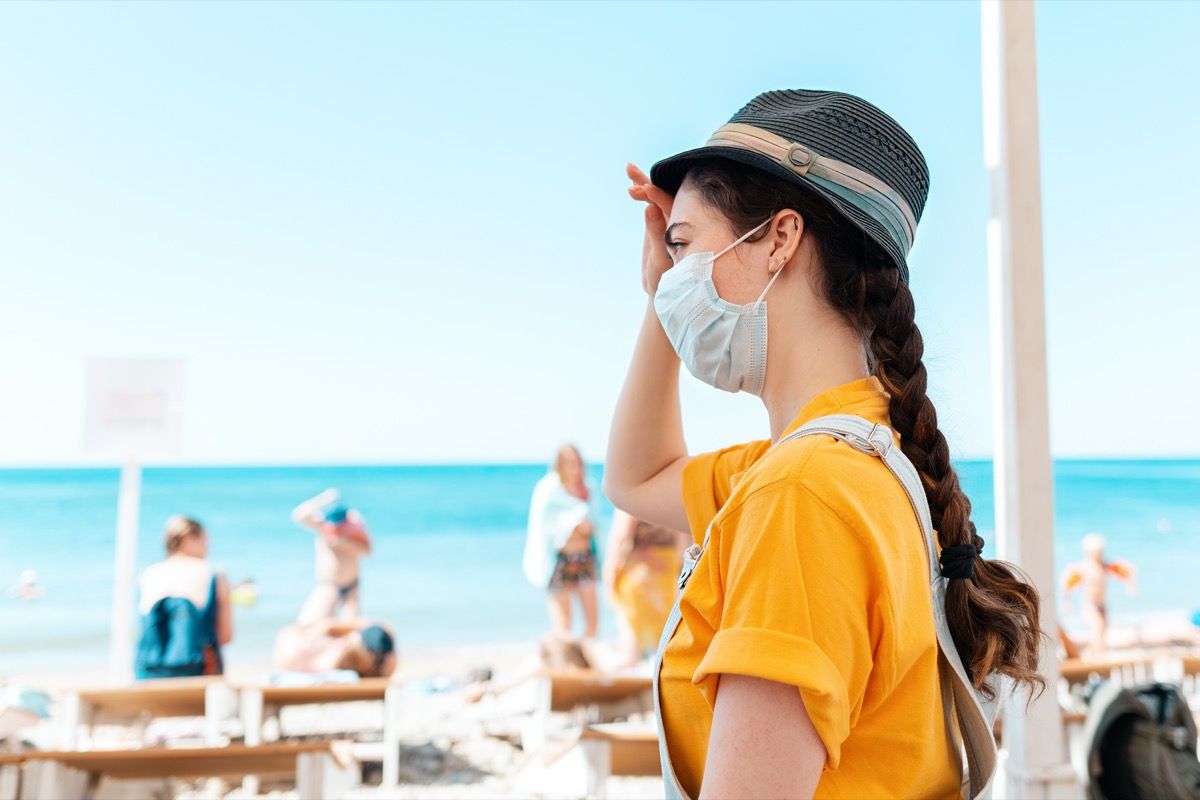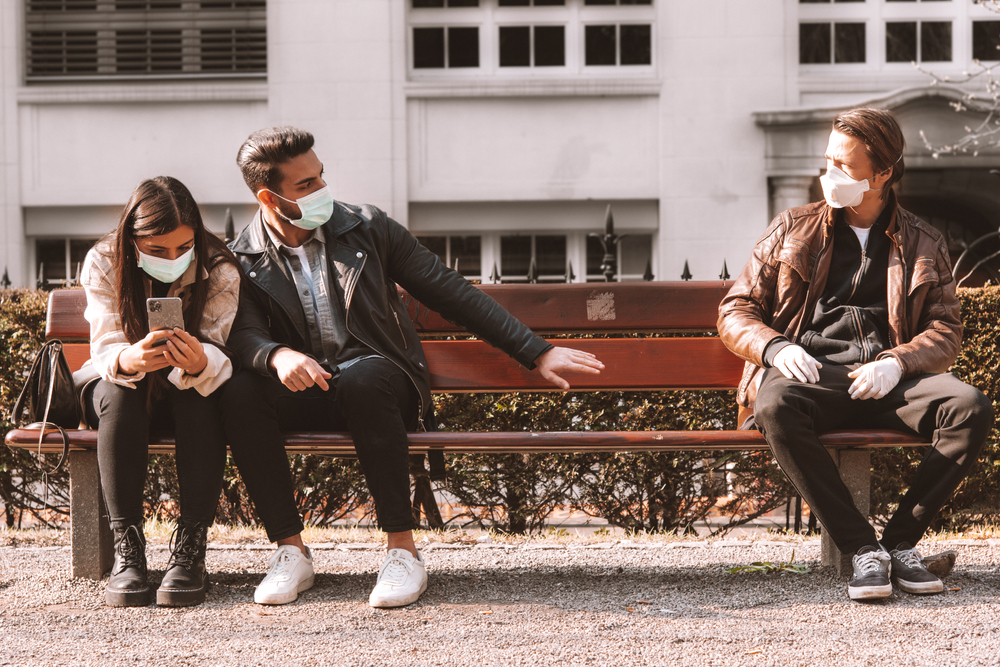In a Jan. 31 interview with CBS’s Face the Nation, host Margaret Brennan asked Gottlieb about the spread of B.1.1.7 and which states were most “at risk of being overrun” by the new strain. “I think Miami is at the highest risk right now, Miami and southern California,” he said. “If you look at where B.1.1.7 is right now in the country, about half the cases that we’re turning over in southern California and in Florida and the cities are the hotspots—San Diego, Miami.” For more on the current spread of COVID-19, find out The One Thing That Could Determine If Your COVID Case Is Severe or Not. Recently, the CDC predicted that the U.K. variant will become the dominant strain in the U.S. by March. But Gottlieb suggested that while B.1.1.7 will be prevalent in certain states, it won’t fully supersede the existing strain of COVID-19 nationwide until quite a bit later. “I think that the possibility is that we’re not going to see a national epidemic with B.1.1.7 at least in the spring and the summertime. It’s a risk to the fall,” he said. “But what we’re likely to see is regionalized epidemics with this new variant.” And for more on where your state stands, check out How Many Cases of the New COVID Strains Are in Your State. When it first gained wide attention in December, experts believed that the U.K. strain was more contagious, but no more deadly than previous variants. However, on Jan. 22, British Prime Minister Boris Johnson said the U.K. variant “may be associated with a higher degree of mortality,” a notion White House COVID adviser Anthony Fauci, MD, has since backed up. “There’s some evidence right now that does suggest that it is more pathogenic, that it does cause more severe illness,” Gottlieb warned on Face the Nation. “And we do know that it’s about 50 percent more transmissible.” And for more regular COVID news sent right to your inbox, sign up for our daily newsletter. Gottlieb said there’s still some good news about the U.K. strain. “What we also know from the data, at least the data we have so far, both experimental evidence as well as the data that’s come out of some of these vaccine trials—like the Johnson & Johnson vaccine trial and the one with Novavax—is that immunization and prior infection appears to be protective against the B.1.1.7 variant,” he said. And for more good news from Fauci on the subject, check out Dr. Fauci Finally Has Some “Very Encouraging” News About COVID. According to Gottlieb, there are two main ways to prevent the B.1.1.7. variant from becoming a bigger problem: 1) getting vaccinated and 2) following precautions like wearing masks.ae0fcc31ae342fd3a1346ebb1f342fcb “As we immunize more of the population and if people continue to wear masks and be vigilant in these parts of the country, we can keep this at bay,” he said. “It’s not too late, but it’s a real risk to those regions of the country right now.” Gottlieb added that he believes “we have the potential to turn a corner.” “Things are clearly improving around the country. We can’t take our foot off the brake too quickly in terms of the things that people are doing, like wearing masks and being more vigilant,” he said. “That’s really probably what’s bringing down infection rates across the country right now.” So, while this U.K. COVID variant is more dangerous, adhering to social distancing, hand washing, mask wearing, and receiving the vaccine when you can is the most effective protection strategy. And for more on the latest in COVID-19 news, check out Dr. Fauci Says These 2 Side Effects Mean Your COVID Vaccine Is Working.


